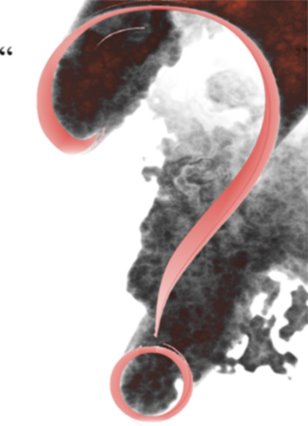Things are (unless they are not)...
It has come to my attention that there are many things in this world that are. Rather, as the last sentence leaves room for confusion, there are many things that exist. And these many things take different shapes and all that. Each thing that exists is a thing that exists uniquely. In the, very loosely applied, structure of quantum physics one could say that each thing that exists, even if it is completely and totally similiar to some other thing or set of things, maintains an existence that is distinct from all other things and that this existence is observable. Each thing inhabits space and time that cannot be shared by other things, thus identical twins are individuals even though the DNA structure of each matches the DNA structure of the other. This, very simply, means that "everything is what it is and is not another thing." But this only holds true when the state of these things can be ascertained or observed.
Take the example of the problem of Schroedinger's Cat. (I am taking liberties with the actual problem laid out by Schroedinger as we are not scholars of quantum physics, nor need we be.) You put a cat in a box that is completely sealed so that you cannot in anyway observe the state of the cat inside the box. You know that the cat is alive before you put him in the box, and assume that the cat is still alive at the moment you seal him in the box. Then, as cruel as it maybe, you introduce a lethal agent of some sort into the box; be it a lethal gas or explosive device or whatever could kill the cat. Now preferably, and because this is merely a thought exercise, you should use something that should more than likely prove lethal to the cat. Now you have a conundrum. Is the cat alive or dead? You cannot observe the cat in anyway, so you have no definitive way of knowing if the poor creature survived the assassination attempt. Thus it's continued existence becomes suspect. The cat can no longer be categorized as alive (=1) or dead (=0). It has become a strange being caught between the two worlds of being and non-being.
Its existence may be described as a sine wave, which at any given point in time oscillates between 1 and 0. Some may quibble with me and say that the sine wave should have an upper limit of 1 and a lower limit of -1; as life and death, existence and non-existence, are complete polar opposites, but this semantic argument doesn't really help us. More to the point, it does little to help our poor feline friend.
So what are we to make of this cat, or former cat? Can we actually assign to him a category of existence or qualities of a thing that exists? Once we open the box and are able to observe the cat we can assign it a state, 1 or 0. But not until then. So we find that our observation of the cat will fundamentally alter the cat's state; this is also known as the Observer Effect. And this is all fine and good, for things that can be measured and observed; in other words, things that have a tangible existence.
But what about things that do not have a tangible existence? It does not take a large leap of logic or faith to understand that the unobserved cat exists and does not exist at the same time. Simply, without observation the cat is alive and dead at the same time. But what about the intangible? What about those things that exist only in the mind and heart; love, hate, friendship, lonliness? How does one come to know such a thing as love? Is it proper for one to take such things on faith or trust?
Some might say that these things can be proven. One can prove love or friendship through kind acts and words and companionship. One can know that another person loves them and be certain. But can we? Or do we find ourselves in uncharted territory, where there are no sine waves to collapse into finite calculations? Can one ever know such things? Or must one trust in oneself to judge these things, these intangible objects, these ethereal existences as real?
And if, in fact, there are no facts to be held or certainty to be gained in analysis, can we even say that they exist? Or do they exist as things that do not exist? Can we say that they defy existence by their very existence? That they hold a special place amongst the things of the world?
Then it might be this status, this state that defies observation and measurement, that grants the intangible such great power over the tangible.
Sartre once wrote, "Hell is other people." And his words ring true, at least to me. They ring true because it is only in other people that we see a reflection of our own psyche. It is through other people that we experience the angst of being. We may each be a mirror unto ourselves, a reflection of all the reflections that are cast upon us. We are become a hall of mirrors that face each other and create the infinite set of reflections that composes each finite human.
"He who makes a beast of himself rids himself of the pain of being a man," HST.


0 Comments:
Post a Comment
<< Home